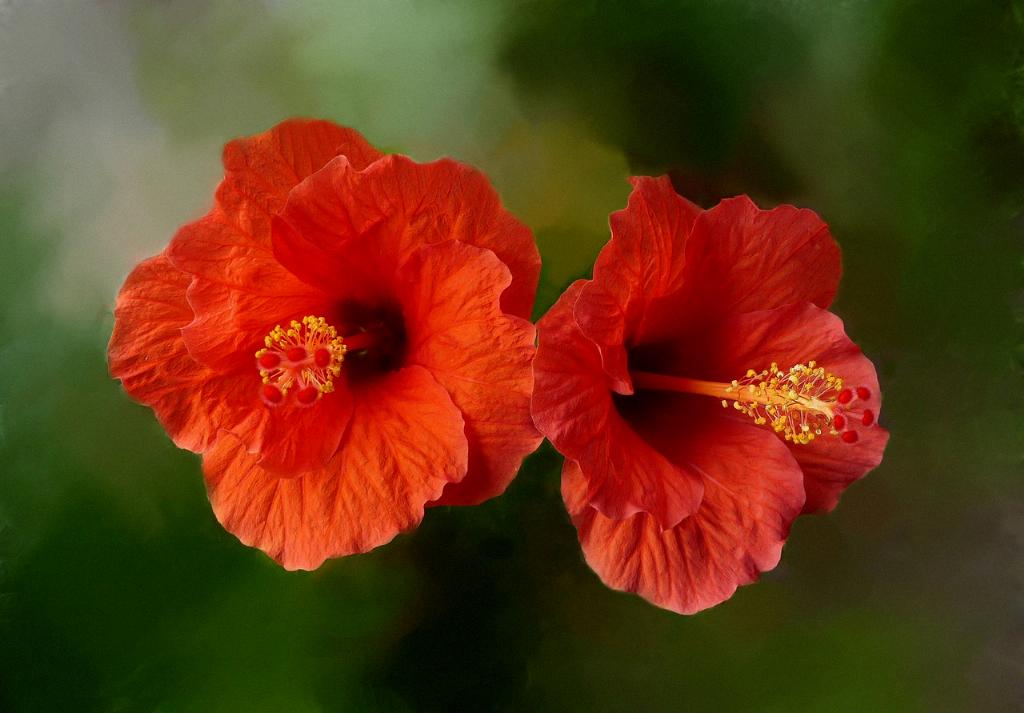When it comes to the question of whether hibiscus is poisonous, it’s essential to consider the type of hibiscus in question. While the flowers of ornamental hibiscus are generally not classified as toxic, this does not mean they can be freely consumed. It should be noted that ornamental hibiscus varieties are typically not cultivated for culinary purposes.
One critical factor to take into account is that some ornamental hibiscus plants may have been treated with pesticides that are not intended for use on food crops. Consuming flowers from these plants can pose a risk as the residue of these pesticides can be harmful if ingested.
Although the idea of incorporating hibiscus flowers into your diet may seem appealing due to their vibrant colors and beauty, it is crucial to exercise caution. When it comes to hibiscus plants grown specifically for consumption, such as the Hibiscus sabdariffa, commonly used in teas and herbal preparations, these are safe to eat when prepared correctly.
It’s important to reiterate that not all hibiscus plants are safe for consumption. Any hibiscus plant that has been treated with pesticides or chemicals not meant for edible crops should not be consumed. If you are unsure about the origin of the hibiscus flowers or plants you encounter, it is best to err on the side of caution and avoid consuming them.
While hibiscus plants can add a lovely aesthetic to your garden, it is essential to differentiate between those grown for ornamental purposes and those intended for consumption. Ornamental hibiscus plants may not be poisonous in the traditional sense, but the treatments they receive may make them unsafe for consumption.
When considering the safety of hibiscus, always prioritize sourcing your hibiscus plants and flowers from reputable growers or suppliers. This ensures that you are aware of any potential treatments or pesticides that have been used on the plants, reducing the risk of inadvertently ingesting harmful substances.
Another aspect to keep in mind is the preparation of hibiscus flowers for consumption. If you are using hibiscus flowers in culinary endeavors, ensure that they have been properly cleaned and prepared to remove any potential contaminants. This extra step can help mitigate any risks associated with consuming hibiscus flowers.
While hibiscus may not be inherently toxic, it is always advisable to exercise caution when introducing new plants into your diet. If you have any concerns about the safety of consuming hibiscus, consulting with a healthcare professional or a knowledgeable botanist can provide you with valuable guidance and reassurance.
Ultimately, the question of whether hibiscus is poisonous can be answered by taking into account the specific variety of the plant, how it has been cultivated, and whether it has been treated with any harmful substances. By being mindful of these factors and proceeding with caution, you can enjoy the beauty of hibiscus plants while ensuring your safety.
In conclusion, while ornamental hibiscus plants are generally not considered toxic, it is essential to be cautious about consuming them due to the potential presence of pesticides and other chemicals. Hibiscus plants grown specifically for consumption can be safe to eat when prepared correctly, but it is crucial to be aware of the source and treatment of the plants to avoid any potential risks to your health.

